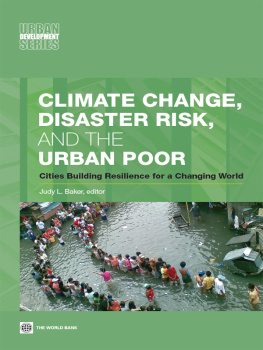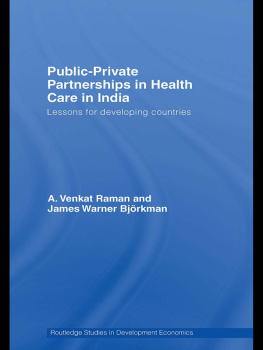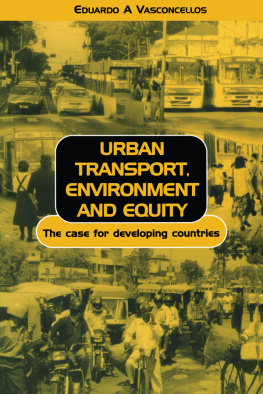Reaching the Urban Poor
About the Book and Editor
As urban populations in developing countries continue to grew rapidly, one of the most critical issues in the Third World has become providing shelter and other basic services such as clean water, health clinics, and sewage disposal to the urban poor. This book of nine case studies of urban programs and projects in Indonesia, Kenya, Malaysia, Nigeria, Pakistan, South Korea, India, and Sri Lanka focuses on impediments to slum upgrading. The authors discuss each project's evolution, the capabilities and resources of implementing agencies, the problems of interagency relationships and coordination, costs and funding, the difficulties of developing effective linkages with poor communities, and the accessibility of the new services to the urban poor.
G. Shabbir Cheema is development administration planner and project coordinator at the United Nations Centre for Regional Development in Nagoya, Japan, and is coeditor of Decentralization and Development: Policy Implementation in Developing Countries (1983).
Reaching the Urban Poor
Project Implementation in Developing Countries
edited by G. Shabbir Cheema
Published in cooperation with the United Nations Centre for Regional Development and the Lincoln Institute of Land Policy
First published 1986 by Westview Press
Published 2019 by Routledge
52 Vanderbilt Avenue, New York, NY 10017
2 Park Square, Milton Park, Abingdon, Oxon OX14 4RN
Routledge is an imprint of the Taylor & Francis Group, an informa business
Copyright 1986 by Taylor & Francis
All rights reserved. No part of this book may be reprinted or reproduced or utilised in any form or by any electronic, mechanical, or other means, now known or hereafter invented, including photocopying and recording, or in any information storage or retrieval system, without permission in writing from the publishers.
Notice:
Product or corporate names may be trademarks or registered trademarks, and are used only for identification and explanation without intent to infringe.
Library of Congress Cataloging in Publication Data
Reaching the urban poor.
(Westview special studies in social, political, and
economic development)
Includes index.
1. Urban, Poor--Developing countries--Addresses,
essays, lectures. 2. Social services--Developing
countries--Addresses, essays, lectures. 3. Community
development, Urban--Developing countries--Addresses,
essays, lectures. I. Cheema, G. Shabbir. II. Series.
HV4173.R43 1985 362.5'8'091724 85-20342
ISBN 13: 978-0-367-28505-0(hbk)
The rapid pace of urbanization in developing countries has increased the demands for urban services. In particular, the urban poor lack adequate access to services such as water supply, sewage systems, low-cost housing, education, and public health. Effective management of urban services for the poor is being increasingly emphasized by planners and practitioners in developing countries, international organizations, and donor countries.
In June 1983, the United Nations Centre for Regional Development (UNCRD) initiated a cross-national research project on managing urban development, which focused on services for the poor. In January 1984, UNCRD organized an expert group meeting, which was held in Nagoya, Japan, to (1) review country experiences in managing urban services, and (2) prepare a research format for undertaking comparable case studies of projects designed to upgrade slums and squatter settlements. First drafts of some of the case studies were discussed in the workshop cn. urban services for the poor held in Cambridge, Massachusetts, from 27-29 June 1984 under the sponsorship of the Lincoln Institute of Land Policy and the Kennedy School of Government, Harvard University.
In this book, the authors describe the evolution and rationale of selected urban projects, the capabilities and resources of implementing agencies, the extent and modes of community participation, and the performance of the projects in achieving stated objectives. They also discuss the policy implications of providing basic urban services to the poor in developing countries.
Many experts from developing countries, international organizations, and developed countries collaborated with UNCRD on this project. Case studies were prepared in cooperation with the Pakistan Administrative Staff College, the University of Sri Jayawardenepura in Sri Lanka, the Kenya Institute of Administration, the University of Science in Malaysia, the University of Benin in Nigeria, the Directorate of Urban Development in Indonesia, and the Korea Development Institute. The UNICEF East Asia and Pakistan Regional Office facilitated the collection of data for the case studies and provided part of the financial support for the project. We are grateful to the case study writers and UNICEF for their cooperation.
The Lincoln Institute of Land Policy provided financial support for reviewing the first draft of the case studies and for making this joint publication possible. I would like to record my deep appreciation to Sein Lin, director of the Institute of Land Policy, and Professor John D. Montgomery, Kennedy School of Government at Harvard University, for their valuable contributions to the UNCRD research project on managing urban development, which led to this book.
I am confident that the book will be of great interest to planners, scholars, and development practitioners concerned with providing basic urban services in low-income settlements and that it will lead to a better understanding of the process of managing poverty-oriented urban projects in developing countries.
Hidehiko Sazanami
Director, UNCRD
1
Reaching the Urban Poor: An Introduction
G. Shabbir Cheema
Urban Growth and Poverty
Urban population is increasing rapidly in most developing countries. Between 1950 and 1975, the urban population of all developing countries grew at an average annual rate of 4.2 percent, and projections in UN studies shew that it will continue to grow at more than 4 percent a year until the 1990s. Prom 1950 to 1975, the urban population in Africa increased by more than 4.7 percent a year, and it is likely to grow at more than 4.5 percent annually until the year 2000.
From 1950 to 1980, the percentage of urban inhabitants increased from 16.2 to 30.5 percent of the total population. It is estimated that by the year 2000, 2.1 billion people in less developed countries (LCDs) will be living in urban areas.
The projections also show that the larger cities in developing countries will continue to rapidly expand. The number of people living in Third World cities of 1 million or more will nearly triple from about 339 million in 1980 to 931 million by the year 2000. The number of cities with more than 1 million residents is likely to double frcm the 118 in 1980 to about 284.and Colombo is 60 percent of the total urban population in Thailand and Sri Lanka, respectively. Similarly, 35 percent of the urban inhabitants in the Philippines live in Manila.







